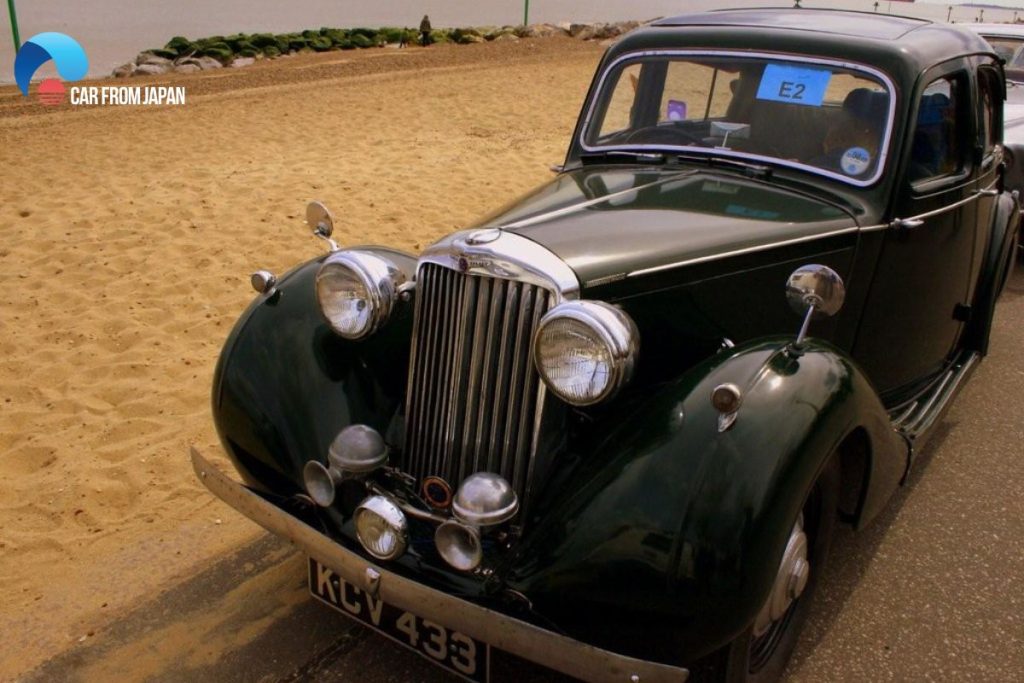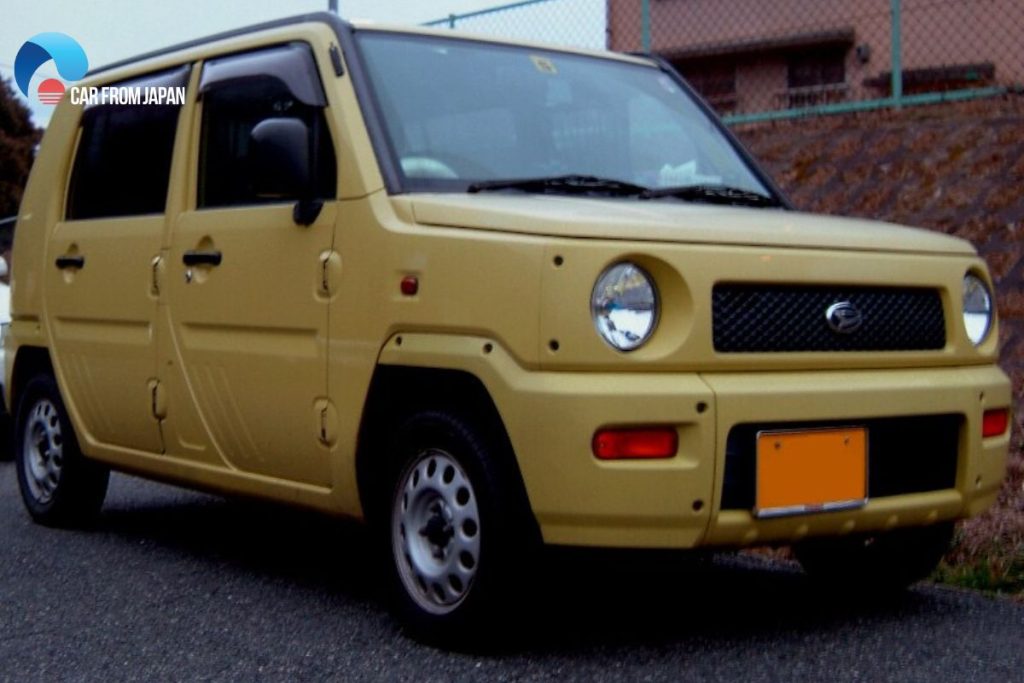Have you ever binge-watched a Japanese show or happened to visit Japan? Did you notice that the cars are boxier and smaller in appearance, and different in comparison to the new modern era cars? You may have thought why do Japanese love boxy cars? Well, here you can find all the answers.
Contents
Everything To Know About Boxy Cars
You’ve seen them on the road. The old, tough-looking Volvo, the quirky Nissan Cube, or the rugged new Ford Bronco. They don’t have the sleek, wind-swept lines of a modern sports car. Instead, they embrace their sharp angles and flat surfaces. They are boxy cars, and their appeal is far more than just a quirky design choice.
A boxy car is defined by its “two-box” or “three-box” design with an emphasis on function over flair. Key characteristics include:
- Sharp angles: Minimal curves, with near 90-degree angles.
- Flat surfaces: Flat hoods, roofs, and side panels.
- Upright windshield and windows: Creates a greenhouse-like cabin with excellent visibility.
- Vertical rear end: Often a flat hatchback or tailgate to maximize cargo space.
The Reason Behind Why Do Japanese Love Boxy Cars
One thing is the preference, but there is certainly more to why the Japanese drive boxy cars. Here’s an elaborate discussion on why the Japanese have a never-ending love for these cars.
1. The “Shinto” mindset

You probably are aware of how Japanese people believe so much in their traditions and historical cultures. One of such principles that the Japanese believe in is “Shinto.” It follows the principle of honoring the earth and other human beings.
The fundamental aspect of Shinto is to keep the minimum that you require and share the rest with your neighbors. This would not only give you satisfaction and happiness but make you selfless as well.
Now you must be thinking what it has to do with cars? The Japanese have followed the same rule while designing for the “three box rule,” cars that promote Shinto.
It is the message that they pass on to the world that one should always develop a giving nature. This is one reason why do Japanese love boxy cars, read on for other philosophies behind the choice.
2. The “Kei Cars” concept
Kei cars, or aptly the light automobile version of cars is an ever prevalent concept in Japan since World War II. That was a difficult time for Japan, and therefore, the people there couldn’t afford the luxury.
In an attempt to make automobiles accessible and affordable, Japan introduced “Kei cars.” These were small boxy cars that added affordability and comfort to people across Japan.
The reason behind the increasing love for the boxy cars points to the low tax and insurance liabilities that it offer. You would notice that the boxy cars are more prevalent in rural areas.
The reason behind this is that they do not have to certify any parking space availability while buying the vehicle.

3. The space factor
Japan is an island country that has become overcrowded over the years. Owing to the high population rates around the country, parking space tends to fall short supply.
When it comes to parking a car in any city around, drivers are facing challenges like never before. While one may enjoy driving the oversized and westernized cars, it would not be good for the increasing traffic.
Only a small car, such as the boxy looking cars could save the day. The minimal parking space that the car occupies makes it a great choice for Japanese. That doesn’t mean you would have to compromise on the inside space. The Japanese manufacturers have worked creatively to increase the inner space while maintaining a compact outer shell. You could also go through industry knowledge for more interesting facts about cars.
FAQs
Are there cultural reasons behind the love for boxy cars in Japan?
Yes, there are cultural reasons. Japanese culture values functionality and minimalism, and boxy cars align with these principles. Additionally, boxy cars often have a more “kei car” look, which is a popular category of small cars in Japan.
How do boxy cars cater to the needs of Japanese families?
Boxy cars are spacious and provide ample interior room, making them ideal for families. Japanese families often prioritize comfortable seating and cargo space, which boxy cars offer in abundance.
What about safety concerns with boxy car designs?
Boxy cars can be safe, thanks to advancements in automotive engineering and safety technology. Manufacturers have adapted boxy designs to meet safety standards, and many modern boxy cars come equipped with advanced safety features.
How do boxy cars fare in terms of versatility for various uses?
Boxy cars are versatile and can adapt to various uses. They are suitable for commuting, family transportation, and even outdoor activities like camping due to their spacious interiors and practical designs.
Speaking of boxy cars, check out this video from Vox to get some fun facts about how cars went from boxy to curvy!
The Verdict
While every part of the world is feeling proud to introduce bigger cars that offer extra luxury, the Japanese opt to differ. Now that you know why Japanese love boxy cars, you would understand why they are called smart people.



